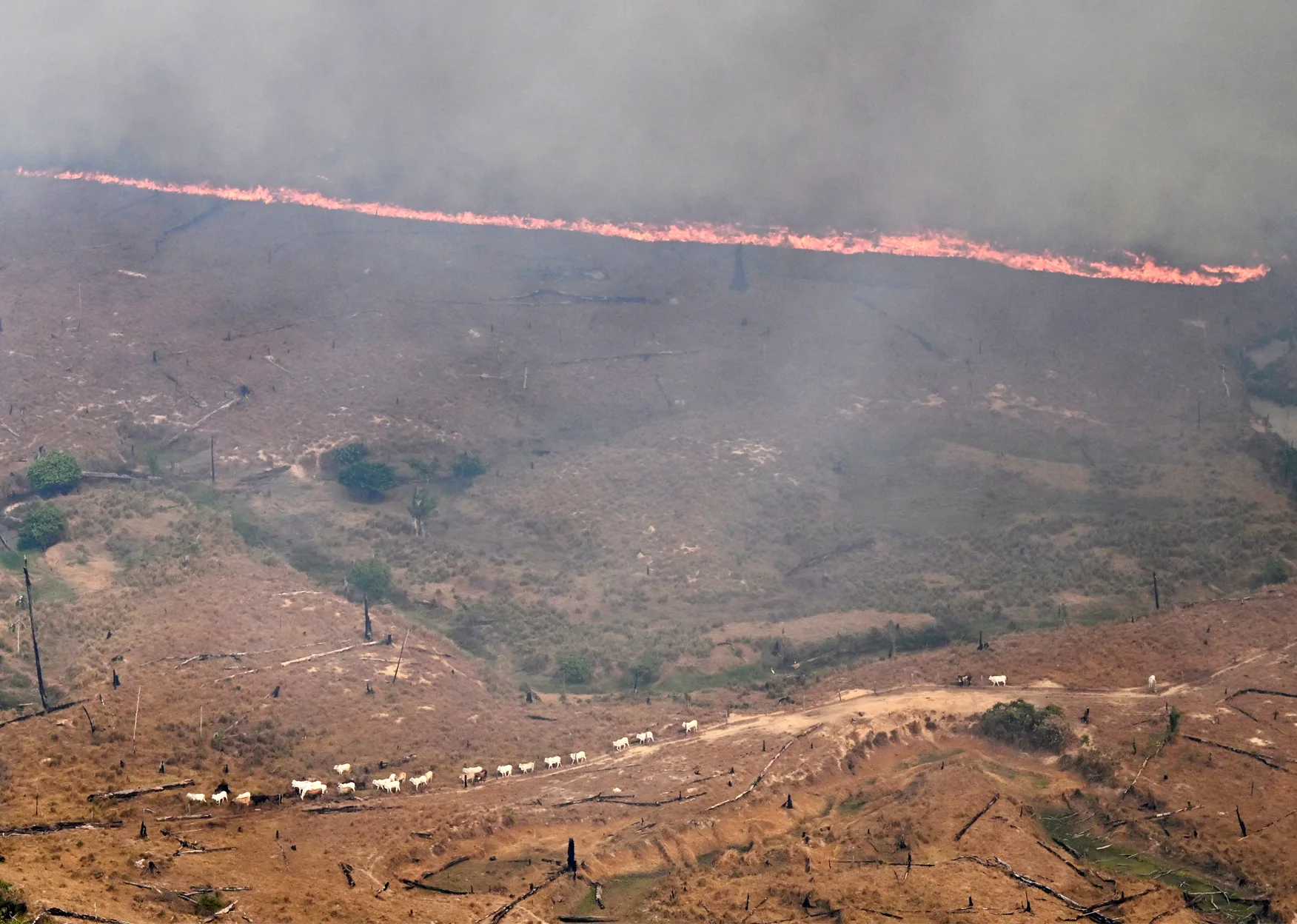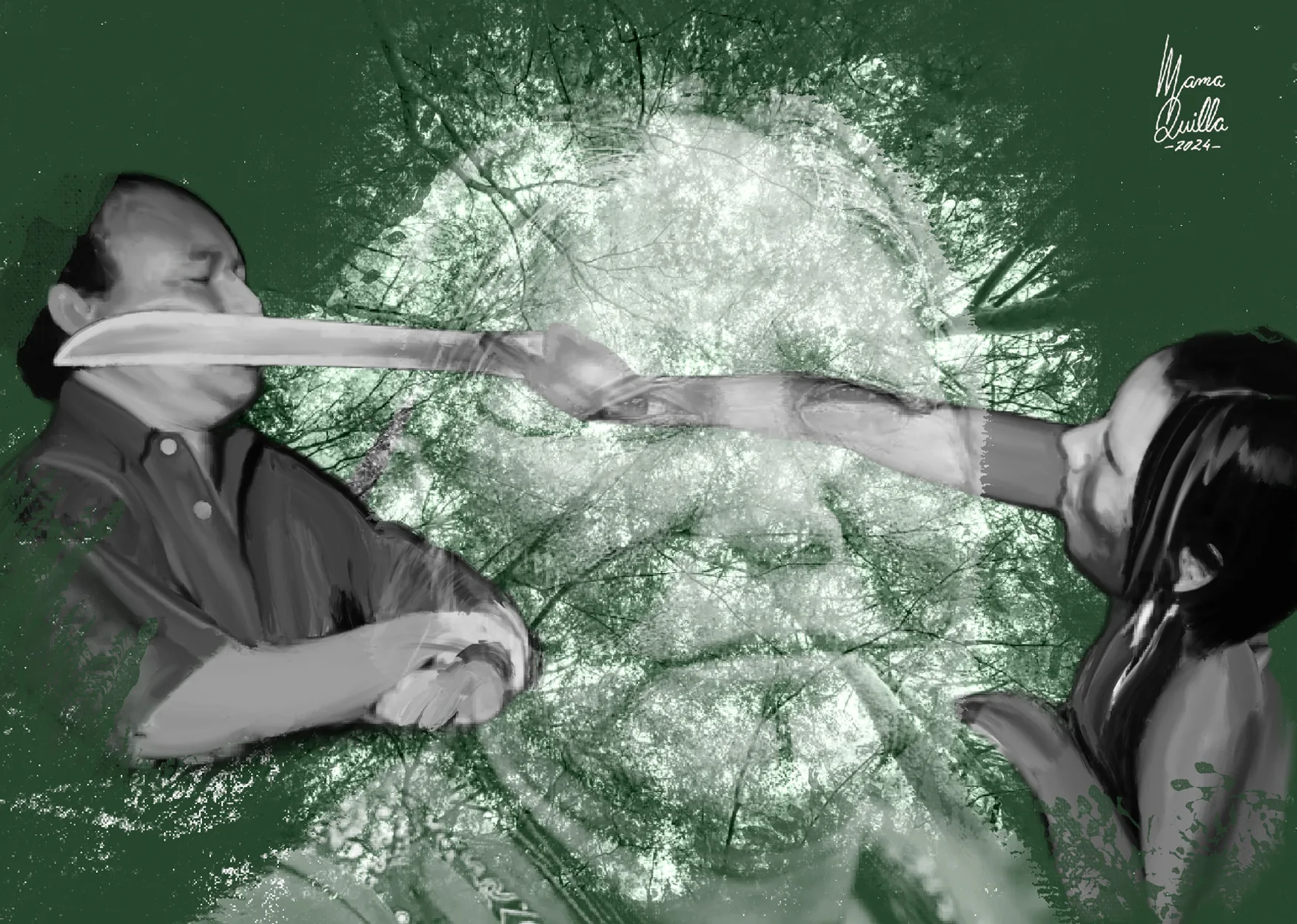| Our Voice
|

|
|
Stop voting for politicians who are killing you
|
Either we halt destruction or we’ll see a lot more blood, pain, death, and maybe extinction
Eliane Brum
Altamira, Xingu River, Amazon
The most dangerous denier is the person who believes they aren’t a denier. The person who recognizes what’s obvious, what’s scientifically proven, what we see and feel every day, like the planet growing hotter, but who continues to live as if their life and everyone else’s weren’t under lethal threat. Right now, we in Brazil have brutal evidence of just how powerful this denialism is: from north to south, the country is under a haze of smoke from fires raging in the Amazon Forest, Pantanal, Cerrado, and Atlantic Forest. Even monoculture fields planted where Nature once reigned are burning. Most of these fires were set by human hands, and the 2024 dry season got off to an early and especially severe start in the Amazon. Classes were suspended in São Paulo and families forced to leave their homes in the region of Ribeirão Preto, some 300 kilometers from the state capital. The skies over the far southern state of Rio Grande do Sul turned ash-gray, while its population was still grappling with the consequences of its most extreme weather event ever – the devastating floods that hit earlier this year. And yet the climate collapse isn’t at the top of the agenda in the debate leading up to October’s nationwide local elections—oftentimes, neither questions nor answers even hint at the topic. The climate collapse is not a priority in everyday actions, nor do most media outlets feature it in their headlines for more than a day or two. Climate collapse is not the first thought on most people’s minds.
This too is denialism. This is being aware of what’s happening but denying it so you can go on with your life, as if the threat might miraculously vanish. This denialism is killing us and making it ever more challenging to stop global heating, climate change, and the overwhelming loss of biodiversity. It isn’t a matter of demanding changes by individuals, as if one person alone were individually to blame for the collapse and could be individually responsible for the solution. We know that one person only counts as one—and counting as one doesn’t count. But this also doesn’t exempt anyone from making tough individual changes and, above all, from taking action to form the collectives that can indeed make a difference. No one has the right to do nothing, given what lies before us, because we have a responsibility toward others—and we have a responsibility toward what is done in our name.
Those who are pushing our planet-house to the point of collapse will not stop. Only we, collectively, can stop them, by acting politically—in the broad, beautiful sense of the latter word. Acting by voting and by taking part in decisions in the Legislative and Executive branches and in all spaces, public and private alike. Democracy has to be about much more than voting, and even when it’s just voting, Brazilians have been doing a bad job of it—otherwise, far-rightist Jair Bolsonaro would never have been elected, nor could a candidate like Pablo Marçal run for mayor of São Paulo, someone who isn’t even qualified to run for human being. To make matters worse, once most people have voted, they quit participating or keeping an eye on what is being done in their names.
At SUMAÚMA, we have repeatedly pointed out that we must overcome this denialism to have any chance of preventing further burning of our planet-home, more human deaths, increasingly frequent disasters like in Rio Grande do Sul, and the possibility that devastating droughts, such as the one in the Amazon, will take the Rainforest to the point of no return. Because, we repeat, the planet-eaters are not going to stop.
SUMAÚMA has some suggestions of where to start in Brazil. |
|
Read more
|
|
| Spotlight
|

|
|
Reimagining Tuire’s defiant defence of life
|
|
SUMAÚMA asked Amazonian and Indigenous artists to recreate the image of the Kayapó woman who challenged the white men and became a symbol of the forest peoples’ resistance to the Belo Monte Dam |
|
SUMAÚMA
|
|
|

